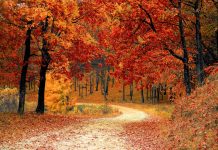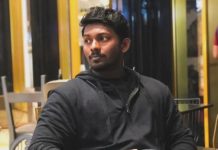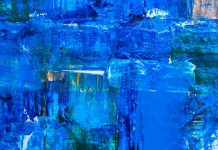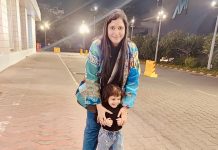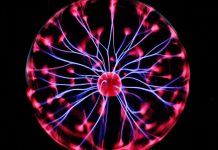Translated from Malayalam by Ra Sh
Shifting house
When the neighbouring home
was demolished
the Gods leapt out first
and took their seats in the jeep.
The aged ones inhabited the
movable objects like the kindi,
the copper vessel now green with mold
the plate with its edges broken
all tied in a sack.
When the neighbours
vacated their house and left
their youngest daughter came out of
her grave and ran after them
crying non stop.
She was digging through her grave
with tooth and nail
since the tree that gave her shade
was chopped down.
Smoothening the wrinkles
in her muddied dress
in the moonlight
she kept calling out to her brother
at the top of her voice.
Though blood streamed from
the little legs
and her wings drooped
and feathers fell
she could not board the jeep.
If she had hanged on
she would have been thrown off
into the deep canal
along with the grandma
and the tiger in the big girl’s dream
when the jeep turned a bend.
When their cacophony
faded at a distance
mother called out from the courtyard
“Look! The milk shouldn’t boil over.”
When I went in I saw the little girl
huddled in a corner of the kitchen
switching off the gas.
I said hello and
set apart a glass of tea
for her too.
Let’s go, see the sea !
Let’s go, see the sea.
We can count the waves
throw the sand around
write a wish on the sand with fingers
can cry aloud
“give it back, o sea!”
when the waves wipe them off
Can enjoy the breeze
go picking up conch shells
can jump aboard a small boat
and paddle furiously
looking for a shade where
even the gulls can’t reach
can lose our bearings
can get close to a whale
with its mouth open.
The small boat can get caught
swirling in a whirlpool
can sway from the winds
vision blocked by the stormy rain.
We can live drinking
each other’s tears.
A ship that sank in a
bottomless vortex.
A fisherman is there
in the shade of its sail
sinking his arms and legs
into his decaying clothes
eyes rolled open
in a broken dream.
Eating raw the little fishes
drinking the clear water
the old man lies waiting
like in a penance
waiting for us to reach.
We can learn magic chants
to break open the water wall
to put to sleep the water demon
to know certain directions
to listen to some tales
to forget certain things
to sit body to body
to spread the warmth
for a little while.
Those who grab the
sea roots first
become the sea
the sea breaking in waves.
If you become the sea
I will embrace you
to be adrift like a sailor.
If you become me
rub your body against mine
and become a mermaid.
Let’s go, see the sea
the land is so dreary
let’s be creatures of the sea.
Pettimudi
Like the hands of the poets who
stopped writing after the holocaust,
my hand that held the pen trembled.
When i wrote p-e-t-t-i-m-u-d-i,
the ink streamed out and the
words got smothered on the paper.
The first syllable I wrote on the sand was റ
The first word was തറ
In the kneaded clay of Phocia
I learned to write with fire.
In the rain, the ghosts of the
labourers appeared – they who
couldn’t even let out a groan,
words without lines that appear
in no dictionaries.
Unable to confront them
I hid in the backyard of the night.
With mud filling my mouth, I cried
not like a poor man who feared blasphemy
not like the god who displayed universes
within his mouth.
But like a second class citizen
on my knees.
The miserable stories from the layman.
The cry of a mountain whose wings
were chopped off, a woman-land where
a perpetually humiliated woman
went down splitting the earth apart.
It is the poor who get killed, they have
only them to care for them
and the dogs of the dead.
‘I must record what happened
when I was alive’ –
mutters the shaky broken branch
that slips into loss of memory.
When it comes alive, groans in broken meter.
The head aches like a blasted rock.
Red ink bleeds from the nose like
moisture oozing from stone.
Man, I am mud.
A pit needs to be dug deep below the chest.
When the day broke, had morning tea
and resumed the search with radar.
In the squishy mud-
words with edges broken
sentences that defied grammar
syllables that were scattered.
Search again for the
poems that were lost
to bury them in the same grave.
Pettimudi: This was the habitat of tea estate workers that got buried in mud when there was a mudslide in the adjacent mountain.
Layam: Living quarters of the labourers.
About the Author
Ratheesh Krishna, hailing from Palakkad, Kerala, is a young poet whose poetry looks beyond the age of post-truth. Apart from writing poetry, he also dabbles in Theatre. He is the author of two plays “Akkakkalam” and “Randu Poraalikal.” He is also a theatre artist and Performing & Visual Arts teacher. Ratheesh Krishna has directed short films, plays, and documentaries, many of which were acknowledged by Malala Yousafzai Foundation, USA, Time tunnel Festival in memory of the Beatles Band, Liverpool and Big Home Festival, Manchester, England.
About the Translator

Ra Sh (Ravi Shanker N)’s poems in English have been published in many national and international online and print magazines. His poems have been translated into German and French. He has published three collections of poetry – ‘Architecture of Flesh’ (two editions) ‘The Bullet Train and other loaded poems’ and ‘Kintsugi by Hadni’. Ra Sh also translates literary works from Malayalam and Tamil into English.



